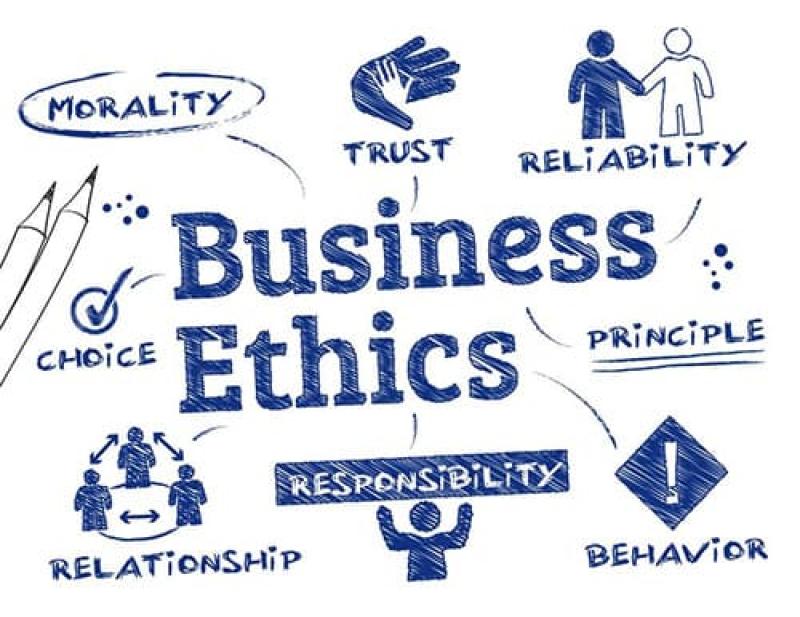What is business ethics course?
A business ethics course is an educational program designed to explore ethical principles, values, and practices within the context of business and organizational environments. These courses aim to provide students with a comprehensive understanding of ethical considerations in various aspects of business operations, decision-making, and stakeholder relationships. The curriculum typically covers a range of topics to help individuals navigate ethical challenges in their professional roles.
Here is a general overview of the curriculum and objectives you might encounter in a business ethics course:
Curriculum Overview:
Introduction to Business Ethics:
- Definition of business ethics
- Historical development of business ethics
- The role of ethics in business and society
Ethical Theories:
- Deontological ethics
- Teleological ethics
- Virtue ethics
- Utilitarianism
- Kantian ethics
- Ethical relativism
Key Ethical Principles:
- Integrity and honesty
- Responsibility and accountability
- Fairness and justice
- Respect for individuals and diversity
- Transparency and disclosure
Legal and Ethical Framework:
- Distinction between legality and ethics
- Ethical considerations within legal frameworks
- Compliance with laws and regulations
Ethics in Corporate Governance:
- Board responsibilities and ethics
- Executive compensation and ethics
- Ethical decision-making at the organizational level
Social Responsibility and Sustainability:
- Corporate social responsibility (CSR)
- Environmental, social, and governance (ESG) considerations
- Sustainable business practices
Ethics in Marketing and Advertising:
- Truth in advertising
- Ethical marketing practices
- Consumer rights and protection
Ethics in Finance and Accounting:
- Financial transparency
- Responsible accounting practices
- Ethical considerations in financial decision-making
Ethics in Human Resource Management:
- Fair employment practices
- Diversity and inclusion
- Employee rights and well-being
Whistleblowing and Ethics Reporting:
- Importance of whistleblowing
- Protection for whistleblowers
- Reporting mechanisms and ethical hotlines
Global Business Ethics:
- Cultural variations in ethics
- Ethical considerations in international business
- Multinational corporations and ethical challenges
Case Studies and Practical Applications:
- Analysis of real-world ethical dilemmas
- Application of ethical theories to practical situations
- Role-playing and simulations
Objectives:
Develop Ethical Awareness:
- Understand the importance of ethical considerations in business and the impact of ethical decisions on stakeholders.
Cultivate Ethical Reasoning Skills:
- Develop the ability to analyze and evaluate ethical dilemmas using various ethical theories and principles.
Promote Ethical Decision-Making:
- Equip individuals with the skills to make ethical decisions in complex and ambiguous situations.
Understand Legal and Ethical Compliance:
- Differentiate between legal requirements and ethical considerations and appreciate the importance of compliance.
Enhance Communication Skills:
- Improve communication skills related to articulating and discussing ethical issues within the business context.
Foster Responsible Leadership:
- Cultivate leadership qualities that prioritize ethical behavior, integrity, and social responsibility.
Encourage Social and Environmental Responsibility:
- Recognize the role of businesses in contributing positively to society and the environment.
Apply Ethical Principles in Specific Business Functions:
- Understand how ethical principles apply to various business functions, such as marketing, finance, human resources, and corporate governance.
Encourage Critical Thinking:
- Promote critical thinking skills in evaluating the ethical implications of business decisions and practices.
Provide Practical Solutions to Ethical Dilemmas:
- Develop practical problem-solving skills to address ethical challenges in real-world scenarios.
Business ethics courses aim to prepare individuals to navigate the complex ethical landscape of the business world, fostering ethical leadership and responsible decision-making. The curriculum often incorporates case studies, discussions, and practical applications to reinforce ethical principles in a business context.
Subjects and Modules in a Business Ethics Course:
A comprehensive business ethics course typically covers a range of subjects and modules, providing students with a well-rounded understanding of ethical principles and their application in the corporate world. Here are some common elements:
1. Foundational Concepts:
- Introduction to business ethics: definition, principles, frameworks, and historical context.
- Ethical theories: consequentialism, deontology, virtue ethics, and others.
- Ethical decision-making models: frameworks for analyzing ethical dilemmas and making responsible choices.
- Legal and regulatory environment: understanding relevant laws and regulations impacting business conduct.
2. Application to Business Functions:
- Marketing ethics: deceptive advertising, consumer privacy, pricing practices, and social responsibility.
- Human resource ethics: employee rights, discrimination, workplace safety, and ethical leadership.
- Finance and accounting ethics: insider trading, financial reporting, and corporate governance.
- Supply chain ethics: labor rights, fair trade, sustainability, and environmental impact.
- Technology ethics: data privacy, artificial intelligence, and social media responsibility.
3. Case Studies and Real-World Examples:
- Analyzing real-life ethical challenges faced by companies in various industries.
- Exploring different perspectives and approaches to resolving ethical dilemmas.
- Developing critical thinking and reasoning skills through case discussions.
- Identifying best practices and learning from past corporate scandals.
4. Contemporary Issues and Emerging Trends:
- Discussing emerging ethical challenges in areas like artificial intelligence, robotics, and global business.
- Exploring the role of corporate social responsibility and sustainability in business ethics.
- Analyzing the impact of globalization on ethical considerations and business practices.
- Preparing students to navigate future ethical challenges in the evolving business landscape.
5. Practical Skills and Professional Development:
- Developing communication skills for effectively communicating ethical concerns.
- Cultivating ethical leadership skills for promoting ethical conduct within organizations.
- Learning how to identify, report, and address unethical behavior in the workplace.
- Building resilience and developing strategies for coping with ethical pressure.
Educational Strategies:
Business ethics courses employ diverse educational strategies to engage students and promote active learning:
- Case studies and group discussions: Analyzing real-world examples and fostering collaborative learning through discussions and debates.
- Role-playing and simulations: Experiencing ethical dilemmas firsthand and practicing ethical decision-making in simulated scenarios.
- Guest speakers and expert panels: Gaining insights from professionals and practitioners facing ethical challenges in their fields.
- Ethical dilemmas and problem-solving exercises: Applying theoretical concepts to practical situations and developing critical thinking skills.
- Research projects and presentations: Exploring specific ethical issues in depth and communicating findings to the class.
- Individual reflection and personal development: Encouraging students to reflect on their values and develop their own ethical frameworks.
By combining theoretical knowledge with practical applications, real-world examples, and diverse educational strategies, business ethics courses equip students with the tools and skills necessary to navigate the complex world of business with integrity and responsibility.












